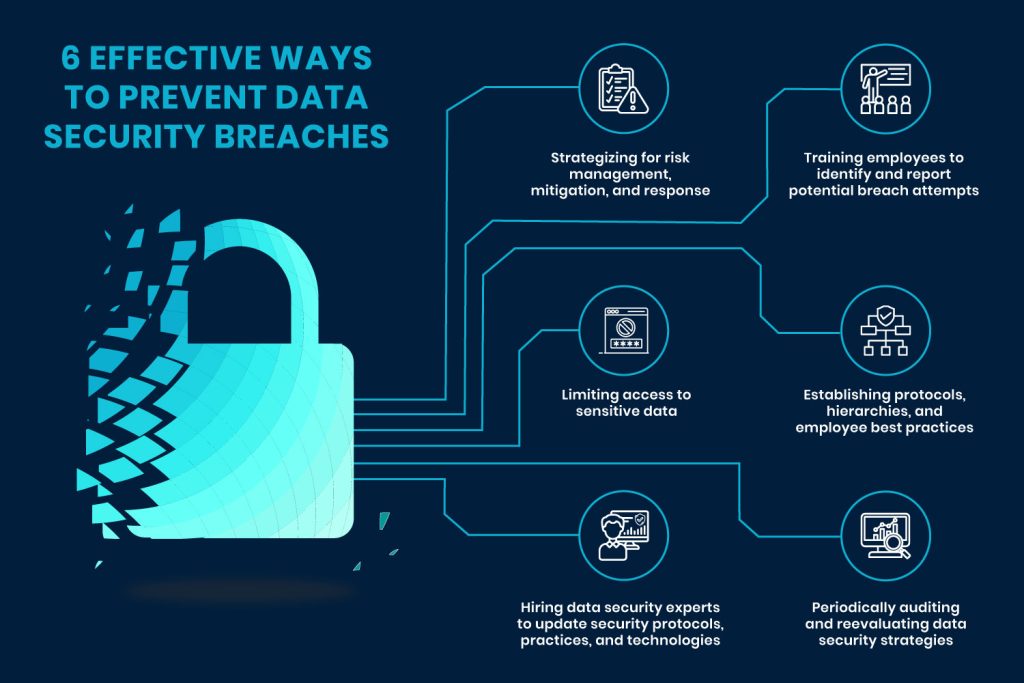How can I protect my business’s reputation in the event of a data breach?

In today’s digital world, data breaches have unfortunately become an ever-present risk for businesses of all sizes. The implications extend beyond data loss, potentially shaking customer trust and tarnishing your brand’s reputation. While breaches are challenging, there are proactive steps you can take to protect your business’s reputation and maintain stakeholder confidence.
1. Prepare a Crisis Response Plan
A well-structured crisis response plan is essential for responding promptly and efficiently to a data breach. This plan should outline steps to notify affected parties, assign responsibilities within your team, and define clear channels for external communication. Regularly review and update this plan to ensure it meets current regulatory standards and addresses emerging cybersecurity risks.
2. Communicate Transparently and Promptly
In the wake of a breach, clear and transparent communication can make a significant difference in maintaining trust. Proactively inform affected individuals, stakeholders, and the public about what happened, how it occurred, and what your business is doing to mitigate the impact. Avoid vague statements and focus on honest, informative messaging. Customers value honesty and a proactive approach, which can help retain their loyalty.
3. Collaborate with Regulatory Authorities
Compliance with relevant regulations, such as GDPR or CCPA, is vital in managing the aftermath of a data breach. Collaborate closely with regulatory authorities to show your commitment to protecting customer data and maintaining legal standards. Addressing these obligations transparently can help rebuild public trust and demonstrate accountability.
4. Strengthen Security Measures
A data breach provides a critical opportunity to strengthen your security practices. Implement robust cybersecurity solutions, such as data encryption, regular security audits, and advanced threat detection systems. By showing that your company has taken steps to prevent future breaches, you can reassure customers that you are serious about protecting their data.
5. Train Employees on Cybersecurity Practices
Many breaches stem from human error, such as phishing attacks. Implement regular cybersecurity training programs to educate your employees on best practices, how to recognize phishing attempts, and safe data handling. Building a security-conscious culture is an investment in your business’s long-term reputation and safety.
6. Offer Support to Affected Customers
To further reinforce trust, consider offering identity protection services, credit monitoring, or other compensatory services to affected individuals. This gesture shows your commitment to their well-being and minimizes the potential harm resulting from the breach, helping to restore customer loyalty.
7. Monitor and Manage Online Reputation
After a breach, your company’s online reputation may come under scrutiny. Monitor social media channels and review sites for negative comments or feedback. Address these issues promptly, and if necessary, use targeted public relations strategies to restore a positive image. Responding calmly and professionally can help shift the narrative toward your business’s efforts to mitigate the breach.
Key Takeaways for Post-Breach Reputation Management
No business is immune to the risk of a data breach. However, proactive measures can prevent a significant loss of reputation. Preparing a crisis response plan, fostering transparency, strengthening cybersecurity, and showing genuine concern for affected customers are all integral steps in managing a data breach crisis effectively.
By focusing on these strategies, your business can navigate the complexities of a data breach with resilience, restoring and even strengthening trust in the long term.

